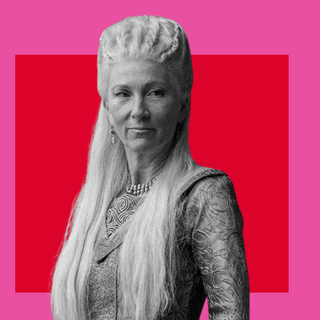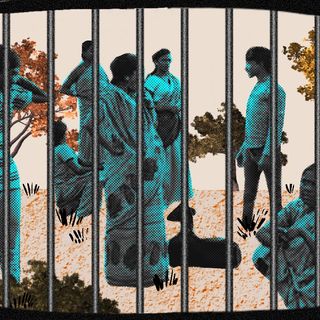
Allegations of Inappropriate Conduct at Nickelodeon Raises Debate on Banning Child Acting
Child actors are vulnerable to systemic harassment, abuse, and a suppression of their individuality at a crucial time, leading many to ask whether show biz should even be legal for children anymore.

Last week, former child actor Alexa Nicholas, who had starred in Zoey 101, staged a protest outside Nickelodeon’s offices, alleging systemic abuse at the network. She specifically named Dan Schneider, the creator of Zoey 101 and other popular shows on the channel. “I didn’t feel safe around Dan Schneider; every time he came on set, my body got extremely tense,” Nicholas said.
Last month, former Nickelodeon child star Jennette McCurdy published a memoir detailing her years as the lead character in iCarly. The book, titled I’m Glad My Mom Died details years of abuse, trauma, and systemic silence perpetuated by the entertainment industry; a space which McCurdy’s mother forced her into while tormenting her throughout. The book also references a top executive by the moniker ‘The Creator,’ who is believed to be Schneider himself.
But it isn’t just one man — the group organized by Nicholas, that calls itself Eat Predators, alleges a culture of silencing survivors through non-disclosure agreements (NDAs) at Nickelodeon. The events have, however, stirred a larger conversation around the ethics of children being hired as actors overall. The entertainment industry would be incomplete without child actors — some of the biggest and most memorable works of art featured children, and continue to have a lasting legacy on the media landscape. But many have begun to question the costs, and whether it’s worth it.
Many countries, including India, ban child labor. But when it comes to child artists, the Child Labour (Prohibition and Regulation) Act, 1986 provides a way to employ them in the media industry — just with some restrictions. Among some of the minimal regulations in place are those pertaining to continuing education, ensuring nutrition, and overall safety. But some argue that these are limited in their scope when it comes to child actors. “While these regulatory processes intend to ensure that children are safe and their schooling or education is not compromised with, what is ignored is the child’s right to leisure and recreation in order to grow to his or her full potential,” wrote Komal Ganotra in Scroll.
On the one hand, some argue that banning child acting would mean that their talent goes unrecognized. On the other, many believe it’s not absolute deprivation of opportunity since there’s room to explore their talent as adults, too. Moreover, acting or any form of art, too, is labor. But children’s agency in claiming wages for their labor as their own is regularly undermined.
A study in India found that child artists work 12-13 hours a day — in contravention of the law. Further, the law states that at least 20% of the child’s income must be deposited in a fixed deposit account in the child’s name — but this, too, is a regulation that the study found to be flouted regularly.
Beyond work ethics, there’s an additional layer to contend with: fame. There’s a troubling pattern, moreover, of child stars succumbing to addiction or suffering from trauma in adulthood. McCaulay Culkin, Lindsay Lohan, and several former Disney child stars are textbook examples of the darkness that follows child actors who reach staggering levels of fame early in life.
Related on The Swaddle:
Why People Are Obsessed With Babies of Celebrities
“Marbled through cinema history are the same awful stories, of girls, bullied, as Garland was, into self-loathing; child actors of both sexes abused and commodified. As adults, they become punchlines. The executives are elsewhere by then,” notes The Guardian, on how child stars are compelled to tolerate exploitation and commodification at a time when they’re meant to be safe and have the space to grow, learn, and make mistakes. Sometimes, the process itself is punishing and exploitative even for adults — for children, it can be deadly. Judy Garland, for instance, was alleged to have been given amphetamines by MGM to sustain 72-hour shifts while she worked on Wizard of Oz.
“The bigger question of whether a child will benefit long-term from being in films is largely unanswerable,” said Lenny Abrahamson, whose film Room featured seven-year-old Jacob Tremblay in a pivotal role. While some directors do — or claim to — try their best to make films with children ethically, there are bigger questions to be asked about the structure of the entertainment industry itself. Is it ethical, for instance, to expose a growing, vulnerable mind to millions, awaiting their judgment? How do studios themselves assess the commercial bankability of a child star without irreparably damaging their self-worth in the process?
Sometimes, parents themselves are complicit in subjecting their children to abusive work environments, and sustaining themselves through their child’s income. Modern Family’s Ariel Winter spoke about how her stage mom realized her own acting dreams vicariously through Winter, making her wear “the smallest miniskirts, sailor suits, low-cut things, the shortest dresses you’ve ever seen. People thought I was 24 when I was 12. If there was going to be a nude scene when I was that age, my mother would have a 1,000% said yes.” Citing this and other forms of abusive practices, Winter legally emancipated herself from her mother when she was 14. But the problem goes back way beyond her time; Shirley Temple, a legendary Hollywood child star, was a prominent voice on this front, who opened up about how her mother put her in the industry when she was three, which opened her up to sexual harassment, exploitation, and abuse therein.
But some note that it isn’t a matter of banning child acting itself — instead, stronger protections are key. “… it’s important for children to see themselves in media. What it’s time for is unions for child actors so that they are equally and fairly represented, compensated, and awarded,” one Reddit user commented. Moreover, child stars also need to be given more respect for the work they put in — it is a service to the public to take on the mantle of telling stories for adults and children alike.
The debate around the ethics of child acting, then, hinges on workplace safety norms and a recognition of the unique needs of growing children within them. We may be unable to imagine a cinematic world without children represented — but we must collectively ensure that they get to have a childhood in the process.
Rohitha Naraharisetty is a Senior Associate Editor at The Swaddle. She writes about the intersection of gender, caste, social movements, and pop culture. She can be found on Instagram at @rohitha_97 or on Twitter at @romimacaronii.
Related


‘Delhi Crime’ Season 2 Shows the Injustices India’s ‘Criminal Tribes’ Face
